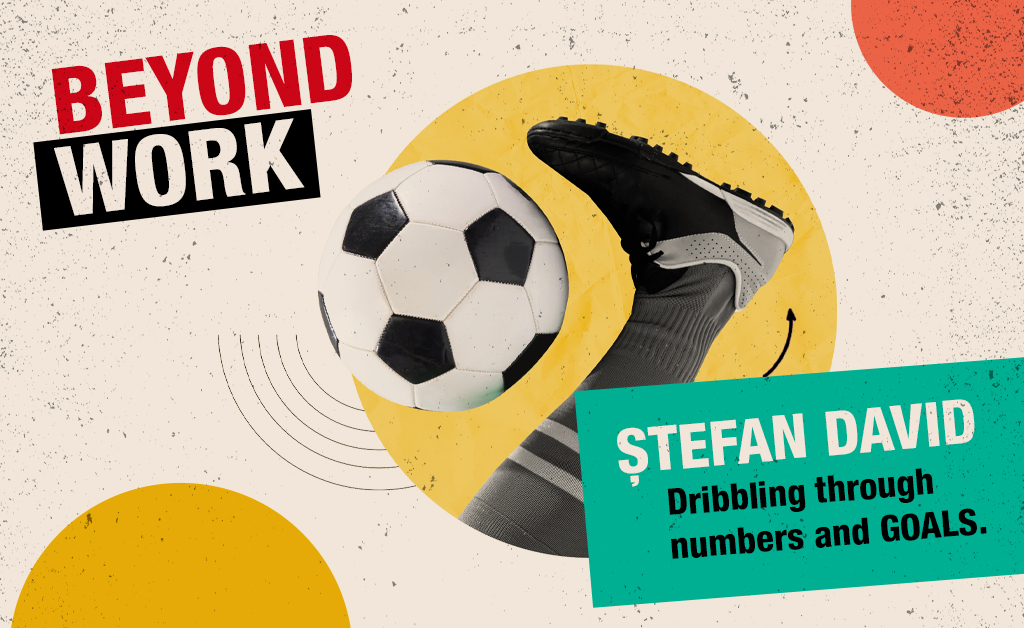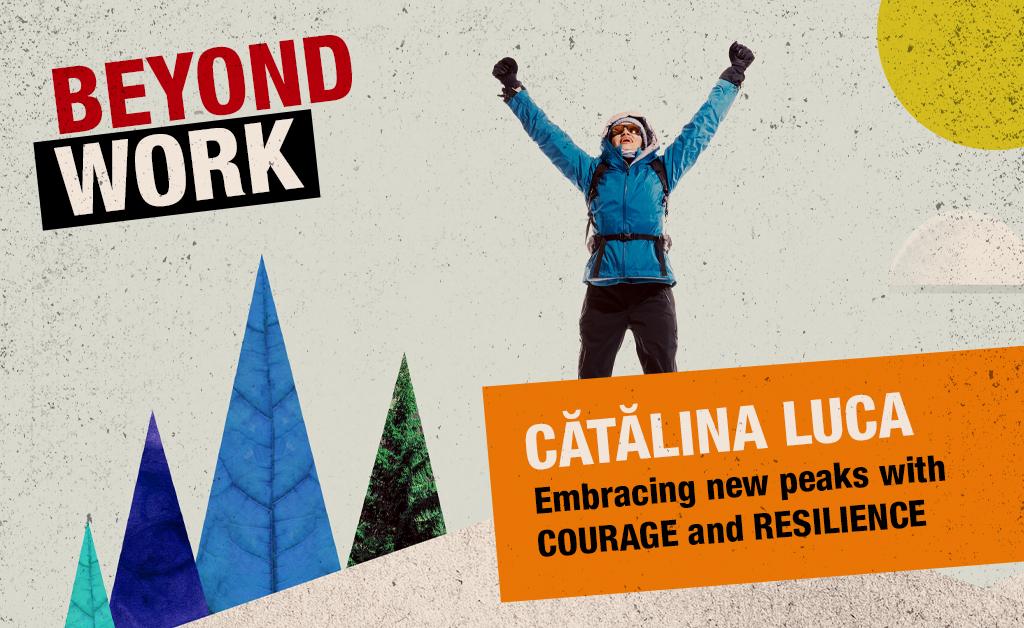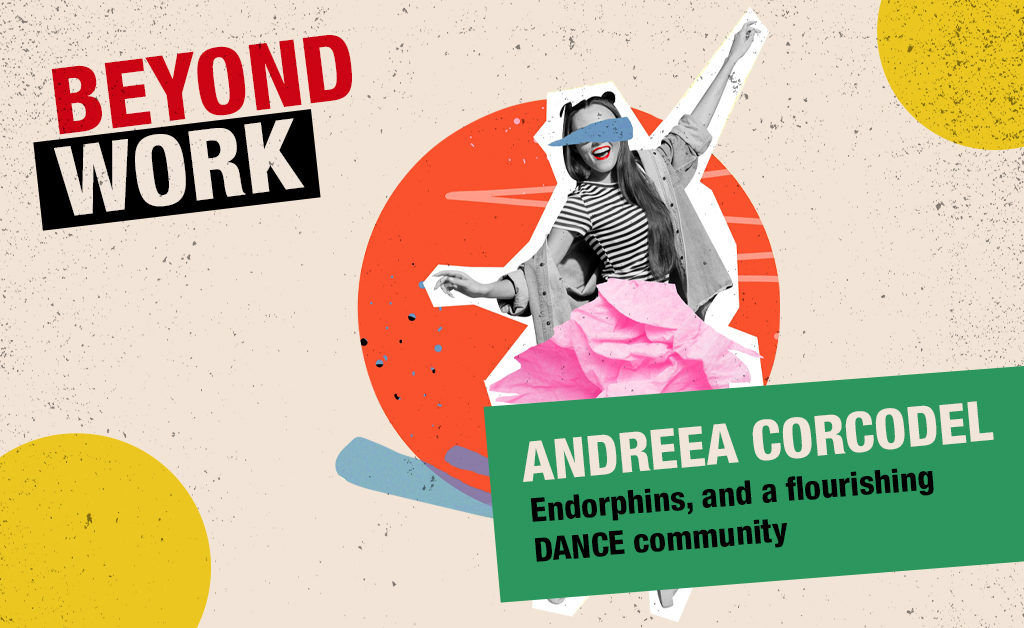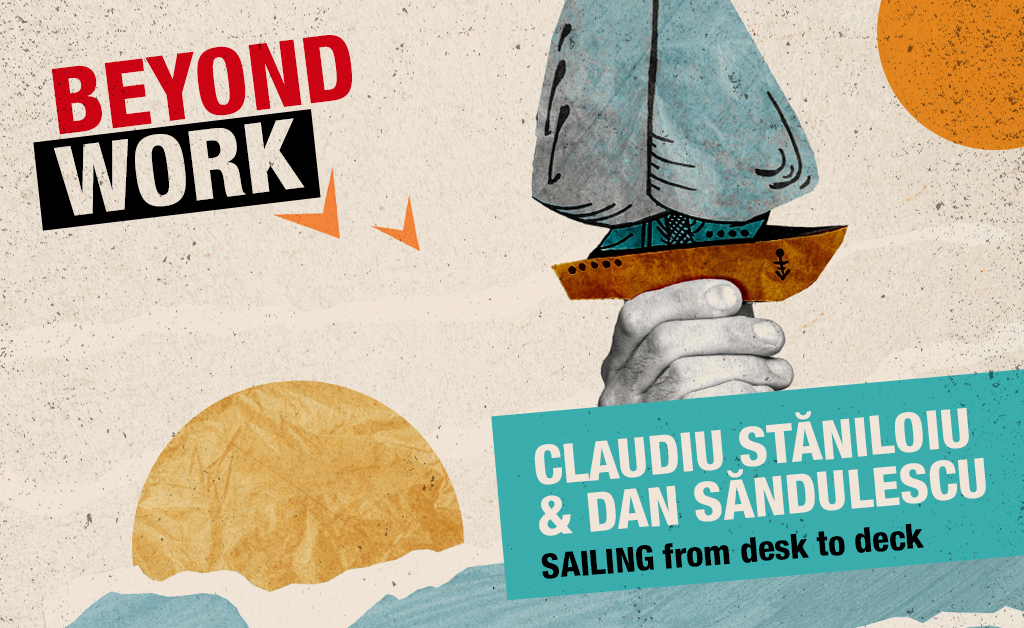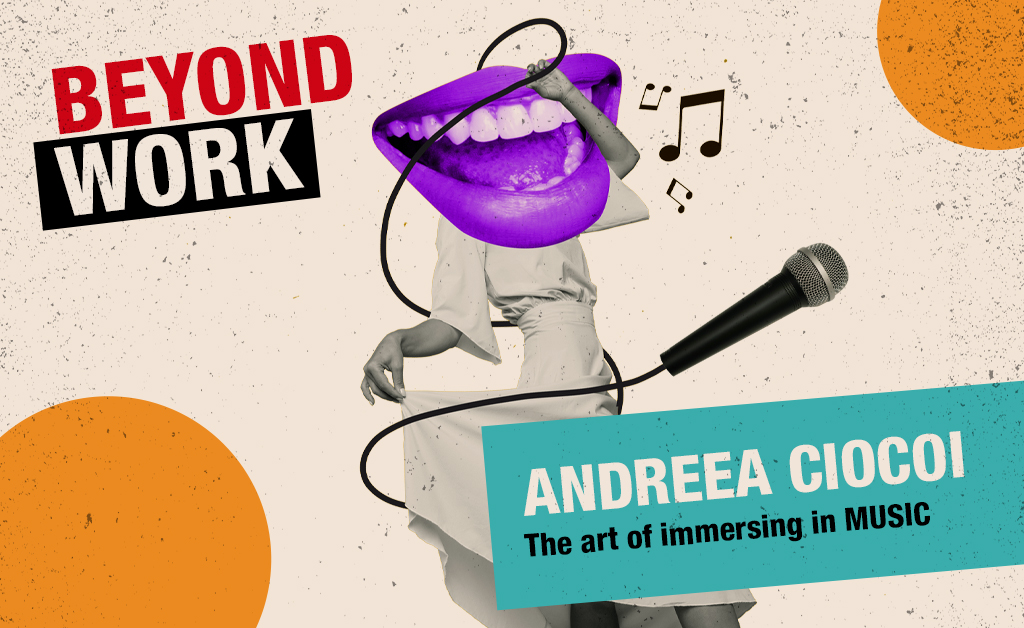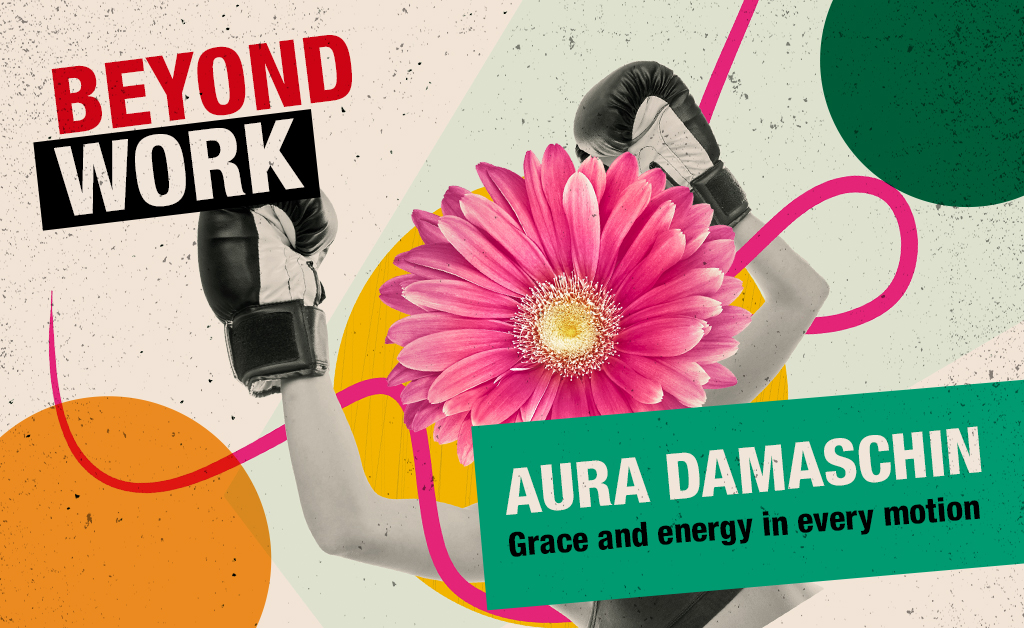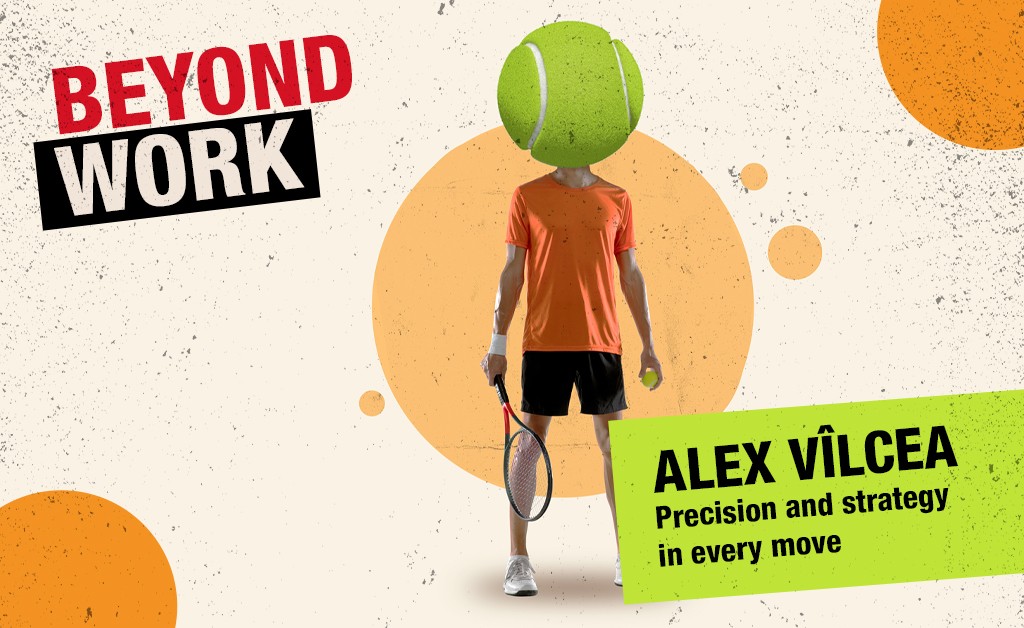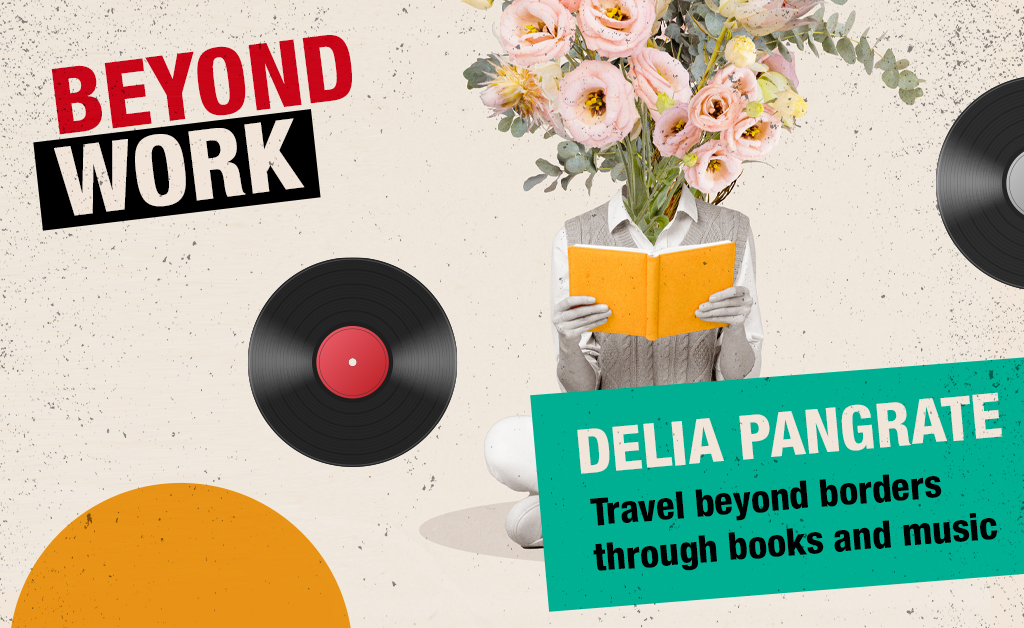
For those who believe that digital natives navigate and discover exclusively through technology, our colleague Delia Pangrate brings a retro challenge.
The newest member of the Connections team, having joined Connections a month ago right after graduating in Communication and Public Relations from SNSPA, Delia is an avid reader and collector of vinyl and old tapes (a short history here, for those who may have forgotten what they’re used for).
Booktube and Goodreads bring her as much joy as physically flipping through the pages of a book, and although she’s the newest member of the team, Delia has integrated quickly and is open to sharing the story of her passions.
A Multicultural exploration that helps you grow
“I’ve only just started at Connections, but I quickly learned the essential tasks specific to a Front Office job: my role involves facilitating communication and collaboration between the company and its partners—clients, suppliers, and collaborators—which contributes to maintaining strong relationships,” she says.
In her free time, she loves reading, and collecting old tapes, and plans to add more vinyls to her personal collection.
“Reading has greatly helped me in personal development, and I’ve tried to learn new things from each book. The Life of a Stupid Man by Ryūnosuke Akutagawa, for example, inspired me to research Japanese history, and I discovered important historical periods like the Edo and Meiji eras, which I tried to understand through additional study. I was also fascinated by the religions practiced there, especially Buddhism, the belief in Buddha (originally from India), and Shintoism, Japan’s traditional religion, which involves the worship of various deities and spirits (kami),” shares Delia.
A Family Legacy Carried Forward and Shared Digitally
Her passion for literature was instilled by her mother, who recommended fiction books. She later discovered the Booktube community, which further increased her appetite for reading.
“Although I started reading when I was quite young, four years ago I became a dedicated reader. I simply fell in love with how a book can transport you to a completely different world.”
“I set a goal to read 20 books this year, but so far, I’ve only managed to read six, one of which is The Wind-Up Bird Chronicle by Haruki Murakami. A bizarre but addictive book. It’s the longest book I’ve read in English so far (600 pages). I can say it was a challenge, especially since I was also busy with my thesis, but I tried not to put pressure on myself, reading purely for pleasure when I had the time and energy.”
Delia feels she has taken something from each book she’s read and has found a way to pass on her inspiration through reviews.
“When I read, I like to use post-it notes, markers, and jot down my favorite passages in a notebook to revisit over time. I also enjoy writing book reviews on Goodreads.”
Blues. Soul. Jazz. Alternative Rock. Lofi Rap. An authentic exploration of favorite artists.
In her free time, when she doesn’t have a book in hand, you can find Delia at vintage fairs—the most authentic way to discover rare copies of good music. For her collection, she often strolls through bazaars or fairs, and if she finds an album she likes at a good price, she’s quick to add it to her collection.
“Collecting CDs and tapes started spontaneously a few years ago, from my love of listening to music. The classic way of playing music on a cassette player or CD gives me a special satisfaction when I pick out the album I want to listen to,” shares Delia, who also has a few recommendations for diverse musical tastes.
“When it comes to music, I recommend Frank, Amy Winehouse’s debut album, perfect for blues, soul, or jazz lovers. I also like Nothing But Thieves by the band Nothing But Thieves—some of my favorites and ideal for those into alternative rock, and Circles by Mac Miller, for fans of jazz rap/lofi rap.”
Her favorite album?
🎶 “It’s always hard for me to choose between Lust For Life by Lana Del Rey and IGOR by Tyler, The Creator.” 😊
Tips for Beginner Readers
Don’t force yourself to read something that doesn’t interest you; look for books that spark your curiosity.
Start with a short story collection, a poetry book, or a short novel. Everything should be gradual, without pressure, and only with an open heart.
Starter Titles
📖 Desire by Haruki Murakami—a short story collection I’ve recommended to many people, especially those who want to read something brief.
📖 Little Fires Everywhere by Celeste Ng—a great book that highlights family dynamics in a respectable suburb.
📖 If you like poetry, I suggest The Gardener: Poems about Love and Life.
📖 Finally, my favorite series is a three-book set called A Good Girl’s Guide to Murder by Holly Jackson, which falls into the mystery and crime genres. It centers around a young woman who, for her graduation project, chooses to investigate a real, unsolved murder case in her town.

